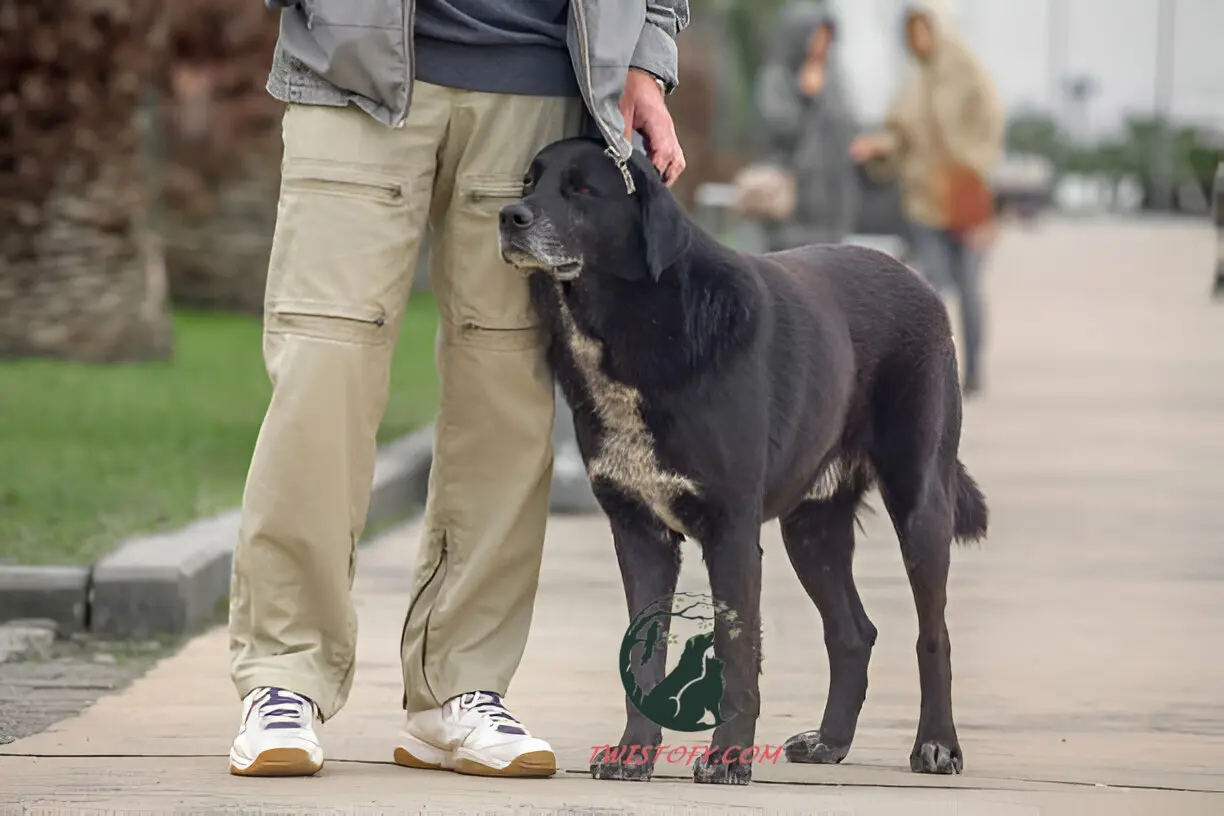Adopting a senior dog can be one of the most rewarding decisions you’ll ever make. While puppies are undeniably adorable and full of boundless energy, senior dogs bring a unique set of benefits to the table. These older dogs, often overlooked in shelters, can make exceptional companions for a variety of reasons. In this comprehensive guide, we’ll explore the numerous benefits of adopting a senior dog and why they can be the perfect addition to your family.
Introduction
When considering bringing a new pet into your home, the first image that likely comes to mind is that of a playful puppy. However, adopting a senior dog can offer a different, deeply rewarding experience. Senior dogs, typically defined as dogs aged seven years and older, often end up in shelters due to various circumstances, such as their owners’ life changes or the misconception that older dogs are less adaptable. The truth is, senior dogs have a lot to offer.
What is a Senior Dog?

adopting a senior dog
Before diving into the benefits of adopting a senior dog, it’s important to understand what qualifies as a senior dog. Generally, smaller breeds live longer and might not be considered seniors until they are around ten years old, while larger breeds might be considered seniors by age six or seven.
Benefits of Adopting a Senior Dog
1. Mature Personality
One of the most significant benefits of adopting a senior dog is their mature personality. Unlike puppies, whose behavior and temperament are still developing, senior dogs have fully formed personalities. This means:
- Predictability: You know what you’re getting in terms of behavior, energy levels, and temperament.
- Stability: Senior dogs are less likely to exhibit erratic behavior, making them a reliable companion.
2. Easier Training
Senior dogs often come with some training, whether from their previous homes or through shelter training programs. They are typically:
- House-Trained: Many senior dogs are already house-trained, saving you the hassle of teaching them.
- Familiar with Basic Commands: Commands like sit, stay, and come are often already known.
- Quick Learners: Older dogs can still learn new tricks and commands, often faster than puppies due to their longer attention spans.
3. Lower Energy Levels
For those with a more relaxed lifestyle or limited space, a senior dog can be an ideal match due to their lower energy levels. Senior dogs are generally:
- Less Demanding: They require less exercise compared to their younger counterparts.
- More Content with Relaxing: Enjoying quiet moments and napping makes them perfect for a calm household.
4. Great Companions for Seniors and Busy Professionals
Senior dogs are often perfect companions for senior citizens and busy professionals because:
- Companionship: They provide steady companionship without the high energy demands of a puppy.
- Flexibility: Their mature demeanor allows them to adapt to various schedules and environments.
- Therapeutic Benefits: Senior dogs can offer emotional support and reduce stress.
5. Health Benefits for Owners
Adopting a senior dog can have various health benefits for the owners, including:
- Reduced Stress: The calming presence of an older dog can reduce stress and anxiety.
- Increased Physical Activity: While they may not need as much exercise as a puppy, senior dogs still need regular walks, encouraging you to stay active.
- Social Interaction: Walking a dog can lead to social interactions with other dog owners and community members.
Common Misconceptions About Senior Dogs

adopting a senior dog
Despite the many benefits, there are several misconceptions about senior dogs that often prevent potential adopters from considering them. Let’s address some of these myths:
1. Senior Dogs Are Always Sick
While senior dogs may be more prone to certain health issues, many are in excellent health. Regular vet check-ups and a proper diet can keep them healthy and happy for many years.
2. Senior Dogs Can’t Bond with New Owners
Older dogs are just as capable of forming strong bonds with new owners as younger dogs. In fact, many senior dogs show immense gratitude and affection towards their new families.
3. Senior Dogs Are Not Trainable
Senior dogs can be highly trainable and often learn new commands faster due to their longer attention spans.
Steps to Successfully Adopting a Senior Dog
Adopting a senior dog involves a few key steps to ensure a smooth transition for both the dog and the adopter. Here are some essential tips:
1. Research and Preparation
Before adopting a senior dog, it’s important to:
- Assess Your Lifestyle: Ensure that your lifestyle and living situation are suitable for a senior dog.
- Consider Health Care Costs: Be prepared for potential health care costs that might come with an older pet.
2. Choosing the Right Dog
When selecting a senior dog, consider the following:
- Temperament: Look for a dog whose temperament matches your lifestyle.
- Health History: Understand the dog’s health history and any ongoing medical needs.
- Energy Levels: Ensure the dog’s energy levels are compatible with your activity level.
3. Home Preparation
Preparing your home for a senior dog includes:
- Comfortable Bedding: Provide soft, supportive bedding for their joints.
- Accessible Areas: Ensure they can easily access food, water, and sleeping areas.
- Safety: Remove any hazards that could be challenging for an older dog to navigate.
4. Initial Adjustment Period
The first few weeks are crucial for a senior dog’s adjustment:
- Routine: Establish a consistent routine for feeding, walks, and bathroom breaks.
- Patience: Allow the dog time to adjust to their new environment and family.
- Vet Visit: Schedule a vet visit to establish a health baseline and address any immediate needs.
Stories of Successful Senior Dog Adoptions
Nothing illustrates the benefits of adopting a senior dog better than real-life stories. Here are a few heartwarming examples:
1. Max and Alice
Max, a ten-year-old Labrador, found a new home with Alice, a retired school teacher. Alice’s calm lifestyle matched Max’s relaxed demeanor perfectly. Over the past two years, they’ve become inseparable companions, enjoying daily walks and quiet evenings together.
2. Bella and the Johnson Family
Bella, an eight-year-old Beagle, was adopted by the Johnson family, who were initially hesitant about adopting an older dog. Bella quickly proved them wrong by adapting seamlessly to their home and becoming a loyal, loving family member.
Health and Wellness for Senior Dogs
Keeping a senior dog healthy involves regular veterinary care, proper nutrition, and mental stimulation. Here are some tips:
1. Regular Vet Check-Ups
Regular vet visits are crucial to monitor and manage any health issues:
- Annual Exams: Ensure at least one comprehensive exam per year.
- Dental Care: Regular dental check-ups to prevent oral diseases.
- Vaccinations and Preventatives: Keep up with necessary vaccinations and preventative treatments.
2. Proper Nutrition
Senior dogs have specific dietary needs:
- Balanced Diet: Provide a balanced diet tailored to their age and health needs.
- Joint Supplements: Consider supplements like glucosamine for joint health.
- Weight Management: Maintain a healthy weight to avoid additional health problems.
3. Mental Stimulation
Keeping your senior dog’s mind active is essential:
- Interactive Toys: Use toys that challenge their problem-solving skills.
- Training: Continue training sessions to keep their minds sharp.
- Social Interaction: Regular interaction with other dogs and people.
The Emotional Rewards of Adopting a Senior Dog

adopting a senior dog
The emotional rewards of adopting a senior dog are immeasurable. These dogs often display a profound sense of gratitude and loyalty, knowing they’ve been given a second chance. The bond formed with a senior dog can be incredibly deep and fulfilling.
Conclusion
Adopting a senior dog is a decision filled with countless benefits. From their mature personalities and easier training to their lower energy levels and the emotional rewards they bring, senior dogs can make exceptional companions. By dispelling common misconceptions and understanding the steps involved in adopting and caring for an older dog, you can make a positive impact on their lives and enjoy the profound joy they bring to yours.
In summary, senior dogs offer a unique and deeply rewarding experience for those willing to open their hearts and homes. They have so much love to give and often just need a second chance to show it. So, if you’re considering adopting a pet, don’t overlook the older dogs. They might just be the perfect addition to your family, bringing joy, companionship, and love in ways you never expected.






